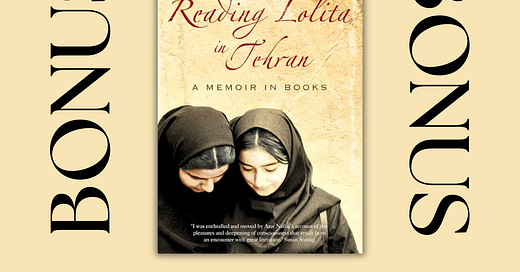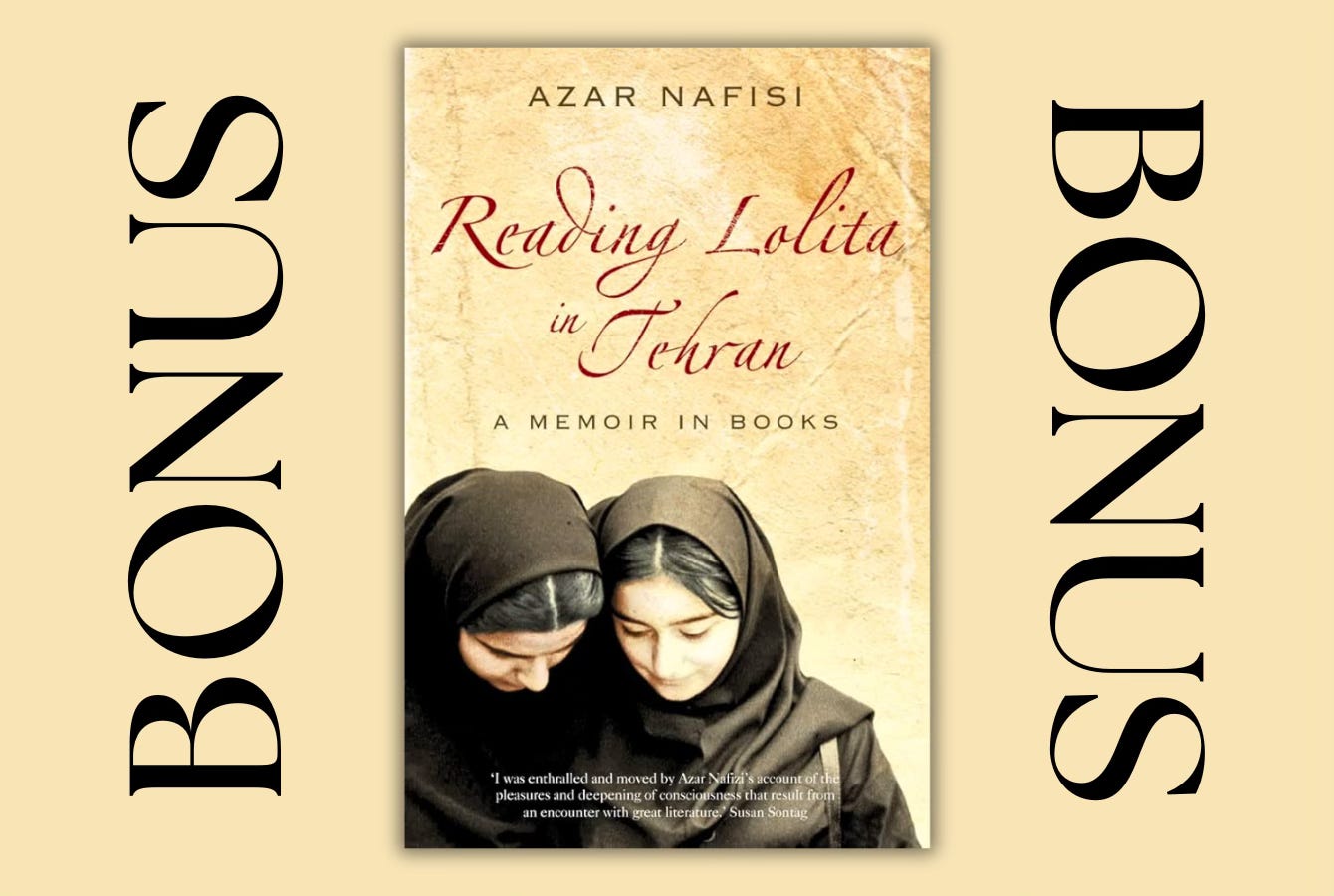“Those around him understood each other at the first word, since they had no words that would end in an unexpected way, perhaps in some archaic letter, an upsilamba, becoming a bird or catapult with wondrous consequences.”
~ Invitation to a Beheading, Nabokov
In Reading Lolita in Tehran, Azar Nafisi quotes Nabokov as having said that “readers were born free and ought to remain free”. How do we hold onto to our readerly freedom? I think it begins with recognising the forces that conspire to take it away. Nafisi helpfully supplies a useful way of thinking about this, by seeing great novels as fairy tales. She writes:
“First, let me remind you that fairy tales abound with frightening witches who eat children and wicked step-mothers who poison their beautiful stepdaughters and weak fathers who leave their children behind in forests. But the magic comes from the power of good, that force which tells us we need not give in to the limitations and restrictions imposed on us by McFate, as Nabokov called it.”
That sense of “McFate”, which tries to narrow us, to warp and break our spirits to fit within the container of its preordained destiny, is present in determinism of all kinds — including in the determinism of singular readings. It’s dangerously present in the reading that insists on its own supremacy, that asserts itself as the “correct” way of understanding a particular novel, and that attempts to impose an epistemological straightjacket on the minds of other readers. This is antithetical to the nature of literature, a curse as compared to the novel’s magic.
So, how should free readers respond to this?




